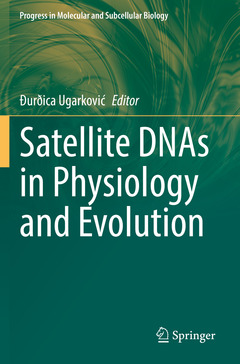Description
Satellite DNAs in Physiology and Evolution, 1st ed. 2021
Progress in Molecular and Subcellular Biology Series, Vol. 60
Coordinator: Ugarković Ðurðica
Language: English
Subjects for Satellite DNAs in Physiology and Evolution:
Publication date: 08-2022
Support: Print on demand
Publication date: 08-2021
234 p. · 15.5x23.5 cm · Hardback
Description
/li>Contents
/li>Biography
/li>Comment
/li>
This book gives a comprehensive overview of the unique roles that non-coding repetitive elements such as satellite DNAs play in different physiological and evolutionary processes.
It presents the gene-regulatory aspect of satellite DNAs in different model systems including mammals, insects and plants. In addition, evolutionary aspects of activation of satellite DNAs in terms of transcription and proliferation are highlighted, revealing the role of satellite DNAs in the process of adaptation to changing environment and in the speciation process.
Finally, the book discusses satellite DNA activation during pathological transformation and the mechanisms by which they affect disease progression. Namely, some satellite DNAs promote the oncogenic processes by affecting genome epigenetic regulation as well as genome integrity. Readers get a full overview of the latest research on satellite DNA.

